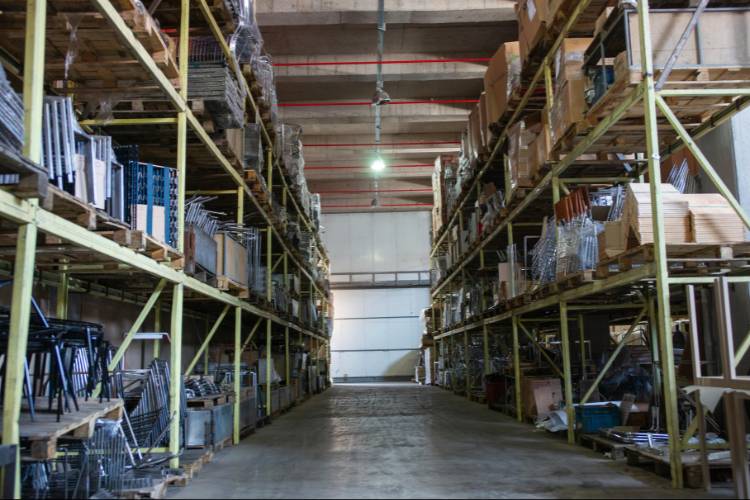In construction, growth doesn’t just come from winning more bids—you also need to create an organization and culture that can support existing operations and future growth goals. That’s why building a culture where communication flows freely, strategies are shared openly, and your team feels empowered should be a priority for subcontracting executives.
Too often, subcontractors focus on topline revenue goals without laying the internal groundwork needed to scale sustainably, which can create an unstable foundation that won’t allow long-term growth.
At Billd’s recent Subcontractor Meetup, Jerry Aliberti, construction consultant and principal of ProAccel, and Josh Luebker, fractional CFO and owner of Sulphur Prairie Management unpacked exactly why internal alignment matters so much—and how neglecting it can kill your growth goals.
Here’s their advice for how to create a team and culture that supports long-term success.
Table of Contents
1. Don’t Let Your Growth Goals Live in a Vacuum
Aliberti said one of the most common issues he sees is subcontractors setting aggressive growth plans that are never communicated past the leadership level. Don’t assume everyone is aware of or understands the goals you’ve set for your company. Instead, make it a priority to share company vision with employees at every level of the business.
“Some owners have very aggressive growth plans, but these plans are never really expressed to employees at all levels—and there’s so many opportunities where they could actually do that. So what happens is that employees are not making decisions that are for the benefit of the company,” Aliberti said.
When your team doesn’t know where the business is headed, it’s impossible for them to make decisions that move it in that direction. Transparency isn’t just about open communication—it allows you to equip every team member to act in alignment with your strategy.
2. Overcommunicate to Build Trust with Both GCs and Your Team
Luebker emphasized that communication isn’t just internal—it’s one of the most underrated growth tools when working with general contractors, too. After determining your team’s capacity, have upfront and transparent conversations with your GCs so they understand whether you’d be able to accommodate their needs. “If you’re overcommunicating that you only have capacity for three projects, a GC will actually appreciate that. You’ll stand out,” he said.
Transparency about your workload can build trust and help clients understand your limitations, and that same principle applies inside the company. Overcommunicating about company priorities, project capacity, and challenges helps eliminate guesswork and prevent burnout. It’s how you create a culture of accountability and predictability—two things every subcontractor needs to scale successfully.
3. Create a Cash Flow Strategy That Allows You to Hire the Right People
You can’t build a high-performing team if you’re always scrambling to make payroll. Sustainable growth requires forward-thinking financial planning—especially when it comes to hiring. Aliberti said without stable cash flow and financial planning, subcontracting executives will struggle to hire and retain good employees.
But hiring the right people isn’t just about identifying and covering talent gaps—it’s about making sure you have the capital to confidently fill them, especially as your business hires more senior or experienced team members, which contributes to overhead costs.. This makes it vital for you to understand your financial standing, forecast when cash will come in (and when it won’t), and have capital options in place before you need them or help overcome cash flow challenges. As Luebker pointed out, your team is your biggest asset—and if you can’t pay them on time, you risk losing them when you need them most.
4. Train for Skills, Hire for Accountability
Every business owner wants to hire “rockstars,” but Aliberti said that true team strength often comes down to training—not just hiring. “Everyone’s complaining about the lack of skilled trade or the lack of skilled management. It’s up to you to put the skill in skilled management and skilled trade,” he said.
The best business owners create environments where people are continually learning and improving. That means sharing operational context (like upcoming backlog), role-playing real project scenarios for training opportunities, and assigning seasoned employees as mentors to newer hires.
By investing in your people, you can increase the chances they stay longer—and drive more predictable project outcomes, both of which are integral to a strong foundation.
5. Match Your Growth Plan to Your Capabilities
Both Aliberti and Luebker pushed back on the idea that growth is about chasing every opportunity or expanding into unfamiliar trades. In fact, companies also experience unhealthy growth when they focus only on chasing topline revenue and lose focus on chasing projects that stay within the company’s ideal niche. Luebker said if a business owner is overcommitting resources without the right team, equipment, or skills, they are setting themselves up for failure.
Open communication is the safeguard here. If your project managers and foremen feel comfortable voicing when a bid doesn’t align with your capabilities, you avoid burnout, rework, and cash flow crises. Empower them to speak up if they have concerns in the company’s ability to take on potential work.
Predictable Operations Start with People—and Planning
If you want to grow sustainably, get serious about alignment and create a culture of transparent communication. Make sure every part of your organization understands where you’re headed and what their role is in getting there. Overcommunicate, invest in your people, and build strategies rooted in your strengths—not just your ambitions. And remember: The ability to hire, retain, and empower your team always starts with a solid capital strategy.
To get more information about how to create healthy growth for your business, watch the full Meetup on demand.






